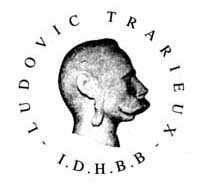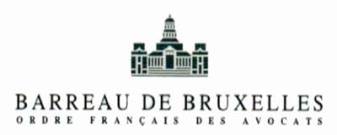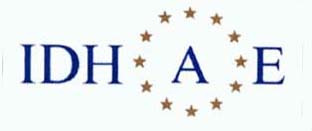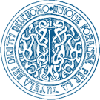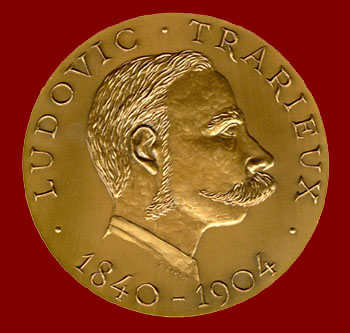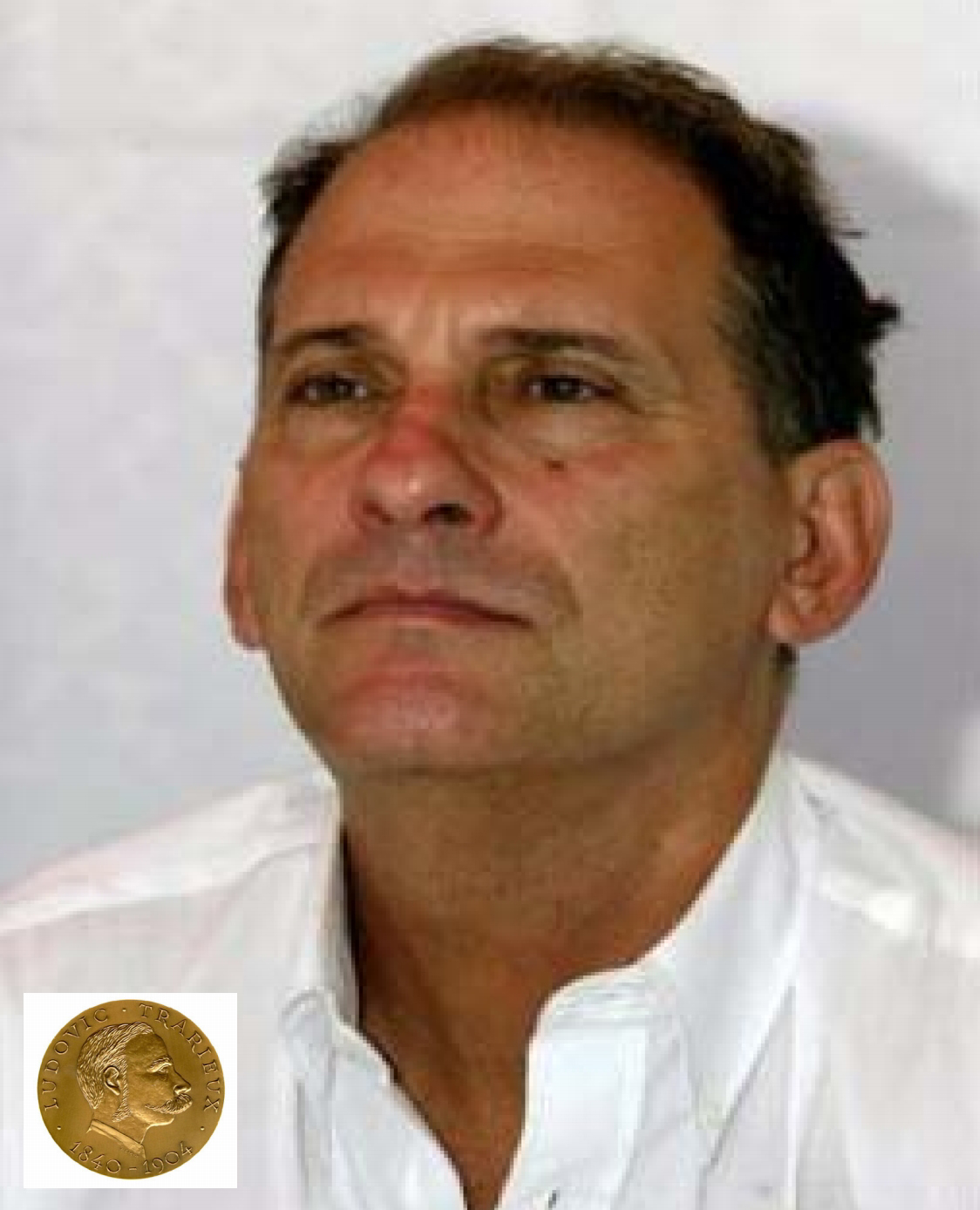|
René de Jesús Gómez Manzano, 63 years-old, is a lawyer who has worked for
years defending cases involving human rights violations. In 1990, he
created the Corriente Agramontista de
Abogados Cubanos, an
independent professional organization of lawyers in Cuba, that seeks to reform
Cuba’s judicial system from within by requiring the Cuban government to
obey its own laws and will to litigate political cases against the state.
Its 1991 manifesto calls for the establishment of a developed rule of law,
an independent judiciary, and the democratisation and decentralization of
the system of state run law offices.
Since August 1990, René Gómez Manzano has
repeatedly sought registration from the Ministry of Justice for a group of
independent lawyers, named first the Unión Agramontista, Agramontist
Union, and subsequently Corriente Agramontista, Agramontist Current.
The group is mainly made up of lawyers who have been willing to take on
political cases. The registration request has received no response in over
five years except for one reply providing details of requirements.
He has openly criticized irregularities in
court proceedings, and has been arrested and detained many times with no
charges brought against him. He has tried to register the organization as
an independent law office responsible only to its clients and not the Cuban
government. This request has been ignored, and meetings have been disrupted
or prevented from taking place.
Under Cuban law, lawyers, who are all employed
by the state are members of colectivos, collective law offices, organized
and supervised by the Ministry of Justice. In October 1995, he is one of
the founders of the "Concilio
Cubano", a coalition of unofficial groups, including political
parties and organizations of lawyers, journalists, women and trade
unionists. In October 1995, René Gómez Manzano was expelled from the
lawyers collective he belonged to after writing a letter criticizing the
leadership of the National Assembly of Lawyers' Collectives. The reason
given for the dismissal was that his behaviour "did not concord with
official policy" and was alleged to be "incompatible with his
participation in the lawyers' collective". During the second half of
February he was arrested with dozens of members of the coalition.
In 1997, Gómez was awarded the
International Human Rights Award from the American Bar Association Section
of Litigation but he could not attend the Ceremony award. One week earlier,
on July 16th, 1997, René Gómez Manzano together with two economists, and an
engineer - Marta Beatriz Roque Cabello, Vladimiro Roca Antúnez and Félix
Bonné Carcassés were arrested, charged with
"counter-revolutionary" activities by the Cuban government,
following their involvement in publishing a document in June 1997, called "La patria es de todos" (The
Homeland is for Everyone), critical of the human rights and economic
performance of the Castro regime and calling for reforms.
The imprisoned activists became known as
the “Group of Four”, all members of the "Grupo de Trabajo de la
Disidencia Interna para el Análisis de la situación Socio-Económica Cubana
", Internal Dissidence Working Group, wrote the document to respond to
an official Cuban Communist Party discussion document, that was supposed to
foster discussion. It urged the Cuban government to hold democratic
elections, liberalize the economy, and improve human rights.
They were formally charged with sedition
in September 1998. After imprisoning the four leaders of the Dissident
Working Group for 19 months, the Cuban government finally conducted a quick
" trial " in March 1999, almost two years after their arrest.
Gómez Manzano and Bonne received four-year terms, and Roque received a
three-and-a-half year term.Roca received a five-year term. René Gómez
Manzano was also prohibited from practicing law for five years.
René Gómez Manzano, has declared a
prisoner of conscience by Amnesty International. The unjust imprisonment
elicited a wave of international condemnation. Gómez Manzano was “conditionally
released” in May 2000 . Although, he continued his political advocacy out
of jail. Gómez Manzano was one of the organizers of an unprecedented
gathering of opponents of the Cuban government in Havana on May 20, 2005
bringing together over 100 representatives of Cuba’s pro-democracy
movement.
On July 22, 2005, Cuban authorities
arrested 33 dissidents accused of preparing to attend a demonstration in
front of the French Embassy in Havana to demand greater European attention
to the plight of political prisoners in Cuba. The group had picked the
French Embassy for its rally to encourage Paris to keep pressure on Cuba to
free 61 dissidents imprisoned in the 2003 crackdown that led to EU
diplomatic sanctions.
Cuban authorities have freed dissidents
detained but René Gómez Manzano ( in spite the fact je was not supposed to
attend the meeting in front of the
French Embassy), a journalist and a
political activist, were jailed in a high security quarter at Villa Clara
prison, facing charges under repressive legislation, known as Law 88 (the
Ley de Protección de la Independencia Nacional y la Economía de Cuba, Law
for the Protection of the National Independence and Economy of Cuba),
calling for seven to 15 years' imprisonment for passing information to the U.S.
government (whether directly or indirectly), to collaborate with foreign
media, or to possess, reproduce, or spread "subversive"
documents. Gomez Manzano had undertaken two hunger strikes during his time
behind bars to protest his illegal jailing - one for three days, and
another for eight days. In both cases, prison authorities administered
intravenous fluids to keep him alive.
René Gómez Manzano was unexpectedly
released on 8th February 2007 from prison after being held for 19 months
without being charged.
Background information
Freedom
of expression and association is severely restricted in Cuba. Members of
unofficial political and human rights groups have regularly been subjected to
intimidation when exercising their right to freedom of expression, assembly
and association.
On April
12th, 2007, Rolando Jiménez Posada, a lawyer a rrested during the
government’s crackdown of March 2003 (Group of 75) and accused of
disrespecting the figure of Fidel Castro, was sentenced to 12 years in
prison in a secret trial without a defense lawyer present. On 17 April
2007, Martha Beatriz Roque Cabello has reportedly been threatened and
harassed by people claiming to be from the security forces, because of her
political activities.
For more : René GOMEZ MANZANO
Created in 1984, the
"International Human Rights Prize Ludovic-Trarieux” is awarded to
" a lawyer, regardless of nationality or Bar, who thoroughout his
career has illustrated, by his activity or his suffering, the defence of
human rights, the promotion of defence rights, the supremacy of law, and
the struggle against racism and intolerance in any form ".
It is the oldest and most
prestigious award reserved to a lawyer in the world, commemorating the
memory of the French lawyer, Ludovic Trarieux (1840-1904), who in the midst
of the Dreyfus Affair, in France, in 1898, founded the " League for
the Defence of Human Rights and the Citizen ", because, he said:
" It was not only the single cause of a man which was to be defended,
but behind this cause, law, justice, humanity ".
The first Prize was awarded on March
29th, 1985 to Nelson Mandela then in jail. It was officially presented to
his daughter, Zenani Mandela Dlamini, on April 27th 1985, in front of forty
presidents of Bars and Law Societies from Europe and Africa. It was the
first award given to Mandela in France and the first around the world given
by lawyers. On February 11th 1990, Nelson Mandela was released. Since then,
it was decided that the Prize would be awarded again.
Since 2003, the Prize is awarded
every year in partnership by the Human Rights Institute of The Bar of
Bordeaux, the Human Rights Institute of the Bar of Paris, the Human Rights
Institute of The Bar of Brussels, l'Unione forense per
la tutela dei diritti dell'uomo (Roma) and the European Bar Human Rights
Institute (IDHAE) whose members are the biggest
european law societies fighting for human rights such
as The Law Society of England and Wales, Rechtsanwaltskamme Berlin, Ordre
français des Avocats du barreau de Bruxelles, barreau de Luxembourg or
Polish National Council of the Bar (Warsaw).
It is presented every year in a city that is home to one of the member
Institutes.
Prize Winners list is the following :
1985: Nelson MANDELA (South Africa)
then in jail.
1992: Augusto ZÚÑIGA PAZ (Peru)
1994: Jadranka CIGELJ (Bosnia-Herzegovina)
1996 Nejib HOSNI (Tunisia) and Dalila
MEZIANE (Algeria).
1998 ZHOU Guoqiang (China)
2000 Esber YAGMURDERELI (Turkey)
2002 Mehrangiz KAR (Iran)
2003 Digna OCHOA and Bárbara ZAMORA
(Mexico)
2004:
Akhtam NAISSE (Syria)
2005: Henri
BURIN DES ROZIERS (Brazil)
2006:
Parvez IMROZ (India)
2007: René GÓMEZ
MANZANO (Cuba) **
**Award
not yet accepted.
According to the regulations of the
award, the Prize is regarded as definitively awarded only if the member elected
or a member of his family accepts it and comes to receive it at the time of
a ceremony from handing-over which is held this year in October 2007
in Brussels.
*
MEMBERS OF JURY 2007 : Bâtonnier Bertrand Favreau, President European Bar
Human Rights Institute (Luxembourg), Bâtonnier Robert De Baerdemaeker,
(President of the Bar - Bruxelles), Bâtonnier Christian Charrière
Bournazel, Bâtonnier désigné (President of the Bar -Paris), Bâtonnier Yves
Oschinsky, Dauphin , (Bruxelles), Presidente Mario Lana, Unione Forense per
i Diritti Umani (Roma), Bâtonnier J.-Pierre Chantecaille, ( President of
the Bar - La Rochelle), Me Christophe Pettiti, IDHAE (Luxembourg), Me
Thierry Bontinck, IDHAE (Luxembourg), Me Marie-France Guet, IDHAE
(Luxembourg), Me Zbigniew Cichon, (Cracovie), Me Rusen Ergec, (Bruxelles),
Me Frédéric Krenc, (Bruxelles), Me Brigitte Azema Peyret, IDHBB (Bordeaux),
Me Raymond Blet, IDHBB (Bordeaux), Me Philippe Froin, IDHBB (Bordeaux), Me
Hélène Szuberla, IDHBB (Bordeaux), Michel Puechavy, ,IDHBP (Paris), Me
Nicole Dehry, IDHBP (Paris), Me Nathalie Korchia, IDHBP (Paris), Me
Annapaola Specchio, (Roma),
© www.ludovictrarieux.org
Send us a
message :
idhae@idhae.org
|
